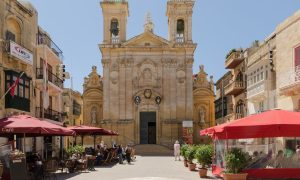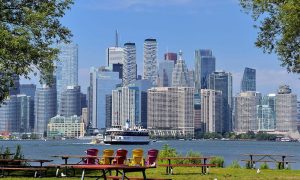Malta, a beautiful island in the Mediterranean Sea, with its pleasant climate, rich history, sound legal system and excellent education and healthcare resources, is attracting more and more internationals wishing toimmigrantsRealization of settlement. In today's increasingly globalized world, Malta has become the home of manyOverseas Immigrationthe destination of choice. So how do you successfully apply in 2025Malta Immigration? This article will detailMalta ImmigrationThe application process, required documents and frequently asked questions will help you better plan your immigration program.
One,Malta Immigrationways of achieving this
In 2025, there are several main routes to immigration to Malta, each with different requirements and processes:
1. Malta Golden Visa Scheme (investment immigration)
The Malta Golden Visa program is an important immigration route that attracts affluent individuals. Through this program, applicants can obtain long-term residency in Malta through investment. Specific investment requirements include:
- endowment: Applicants are required to donate a certain amount (approximately €65,000) to the Maltese Government to support the development of the country.
- Real estate investment: Purchase of real estate in Malta with a value of at least 300,000 euros or lease of immovable property in Malta at a rent of not less than 12,000 euros per annum.
- Government bonds or stocks: Investment of at least €150,000 in Maltese Government bonds or shares for a period of five years.
Upon completion of these investments, the applicant and his/her family members will be granted a Residence Permit in Malta and have the opportunity to apply for Permanent Residence or Citizenship after five years.
2. Immigration through work visas
Malta offers a wealth of employment opportunities for the international workforce, especially in the financial, technology, education and tourism sectors. If you are offered a work contract from a Maltese employer and meet the relevant conditions, you can apply for a work visa. This is a more traditional way to migrate, but requires finding the right job opportunity.
3. Malta Family Reunification Scheme
If you are already a citizen of Malta or a resident with permanent residency, you can bring your family members such as spouse, children, parents, etc. to Malta through the Family Reunification Program. Applicants are required to provide sufficient proof of financial resources and proof of relationship.
4. Malta Student Visa
For those wishing to study in Malta, a variety of language courses, university degree programs and vocational training courses are available. Student visas are usually valid for the duration of the study period and students can apply for a conversion to a work visa once they have completed their studies.
II. Malta Immigration Application Process
Whichever immigration route you choose, the application process is roughly as follows:
1. Choosing a migration path
First, you need to decide which immigration route is best for you. This depends on your personal background, financial situation and long-term plans. Whether it's through investment, work or family reunification, once you've decided on your immigration method, you can start preparing the relevant documents.
2. Prepared Materials
During the application process, you will need to prepare a range of documents. The documents required vary slightly from one immigration route to another, but in general, applicants will usually need to provide the following documents:
- Photocopies of passports: Photocopy of a valid passport and its expiration date.
- Certificate of no criminal record: Applicants and their family members are required to provide a certificate of no criminal record.
- financial proof: Proof of bank deposits, assets or income showing that the applicant has sufficient funds to support himself and his family.
- health certificate: Applicants are required to provide a medical report to ensure that they are free from major infectious diseases.
- be bound to: Valid medical insurance or health insurance.
- proof of residence: Immovable property contract or lease agreement evidencing the applicant's domicile in Malta.
For the Golden Visa program, applicants are also required to provide supporting documentation regarding their investment.

3. Submit an application
After preparing all the documents, the applicant is required to submit the application through the Malta Immigration Department or through an agent. For the Golden Visa Program, the application needs to be submitted through a designated service provider and undergo an initial review. This process usually takes a few weeks.
4. Review and interview
Upon submission of an application, the Government of Malta will conduct background checks and vetting of the applicant. The applicant and his/her family members may be required to undergo an interview, especially in the case of Golden Visa and Work Visa applicants.
5. Approval and Immigration
If the application is reviewed, the applicant will receive a letter of immigration approval. Applicants under the Golden Visa Program are usually required to pay the relevant fees (e.g. donation money and investment amount) and complete the final investment procedures. Upon completion of these procedures, the applicant and his/her family members can obtain a residence permit in Malta and officially become residents of Malta.

III. Frequently asked questions
1. How long does it take to immigrate to Malta?
Depending on the immigration route, the application time can vary. Typically, the approval time for a golden visa is 3-6 months, and work visa applications may take longer. While applications through family reunification or student visas usually take 2-3 months.
2. What is the minimum investment for the Malta Golden Visa?
The minimum investment requirements for the Malta Golden Visa Program are a donation of €65,000, a real estate investment of €300,000 (or a lease of €12,000/year), and the purchase of €150,000 in government bonds or shares.
3. Is it possible to work in Malta?
If you're on a work or golden visaImmigration to MaltaYou can work in Malta. Golden Visa holders can choose to run their own business or be employed in a Maltese company.
4. What is the tax policy for Maltese immigrants?
Malta has more favorable tax policies, especially for high income earners and businesses. The maximum personal income tax in Malta is 35%, but the actual tax burden tends to be lower through tax incentives.
5. Can I apply for EU citizenship after immigration to Malta?
After five years of residence in Malta, eligible migrants can apply for Maltese citizenship and become EU citizens. This makes Malta a stepping stone to other EU countries.
IV. Conclusion
Malta, as a member of the European Union, offers a wide range ofOverseas Immigrationpathway that attracts immigrants from all over the globe. Whether through investment, work or family reunification, applicants are able to enjoy quality living conditions and tax benefits in Malta. With the process and FAQs presented in this article, you can have a clearer understanding of Malta immigration. Ready to start your Malta immigration journey?






